
Approved Halter Class Descriptions
The fleece descriptions developed for the ILR-SD halter classes fall into two general
categories: classes defined by unique
and identifiable fleece type, and classes defined by fleece coverage. These photos are examples of animals that fall within the descriptions of
the ILR-SD defined fleece divisions for showing at halter. Exhibitors are encouraged to enter the animal in the class that most closely
fits either the fleece type or coverage of the animal. The suggested order for shows is Suri, Silky, Classic, Light-Medium, Medium-Heavy
and Extreme Heavy. This was designed
to allow movement of animals between classes.
The halter committee acknowledges that
there will be animals that do not fall neatly into one of the described fleece divisions.
When the judge views a class, they have
the discretion to move an animal to a different fleece class if the animal does
not seem to fit uniformly into the class as it is presented.
Exhibitors may find that the animal “fits” in one class at one show and then
gets moved into a different class at the next show.
For animals that fall in-between defined divisions, exhibitors are encouraged
to put the animal into the class that is offered first in the order, so the judge
has the option of reclassifying them for that show.
If the animal is entered into a later class and doesn’t “fit”, there is no
option to go into a more appropriate class.
The photos shown are to offer exhibitors examples of animals that fit neatly into
the described classes and are for reference only.
Specific fleece traits and coverage examples are provided for information
only.
Animals may show in only one approved halter class and points will be recorded for
ILR-SD members. ILR-SD sanctioned shows
are not required to offer all halter classes and if they choose to combine classes,
classes may be combined as needed to achieve adequate numbers for optimal points
or if entries in a particular class are very small.
The goal of combined classes is to compare animals of similar phenotype and
fleece characteristics and keep the competition comparable for all competitors.
Animals may also show in any optional specialty classes, however, no points will
be assigned for optional classes.
-
Fleece exhibits distinct lock formation forming close to the skin extending to the tip.
-
Fleece hangs straight down from the midline on the back.
-
Fleece exhibits independent movement.
-
Fleece exhibits a cool, slick handle.
-
Fleece exhibits no loft.
-
Fiber exhibits no crimp.
-
Fleece exhibits heavy density of locks.
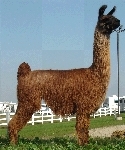
|
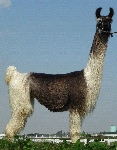
|
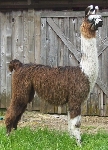
|
|
( Mouse over for larger image or Click to view larger image in new window )
|
-
Fleece exhibits a very soft or silky handle.
-
Fleece exhibits natural wave
-Note: If the fleece is locked to the skin extending to the tip it must have
loft or be shown in the Suri division
-
Fiber exhibits minimal loft.
-
Coverage may vary from medium to heavy
-
Animals in this division will be
single coated If not single coated, then,
they belong in another division.
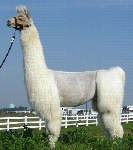
|

|
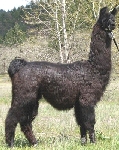
|
|
( Mouse over for larger image or Click to view larger image in new window )
|
-
Abundant guard hair visible on the body and neck of the animal, with short, and minimal “downy” undercoat.
-
The presence of a guard hair “mane” on the back of the neck.
-
A natural change in the fleece at the level of the elbow/stifle, with the
fleece below this point being very short.
-
Natural windows of short fleece - brisket, belly, flank.
-
Minimal fleece on legs/head with characteristics like guard hair, not the downy undercoat.
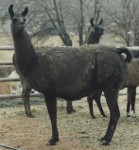
|
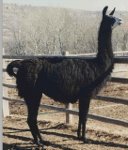
|
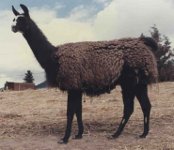
|
( Mouse over for larger image or Click to view larger image in new window )
|
-
Animals may be double coated with moderate density and length.
-
Front legs may exhibit coverage extending down the leg with minimal coverage below the knee.
-
Rear legs may exhibit coverage extending down the leg with minimal coverage below the hock.
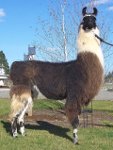
|
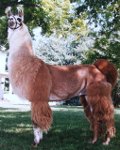
|
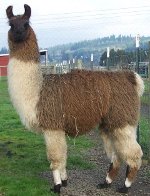
|
( Mouse over for larger image or Click to view larger image in new window )
|
-
Will exhibit even neck fleece that does not naturally molt.
-
Front legs will exhibit coverage down to the knees, potentially down to the toes
with a decline in coverage below the knees.
-
Rear legs will exhibit coverage down to the pastern on the back of the legs
with minimal coverage on the front of the legs.
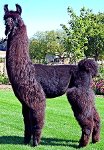
|
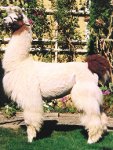
|
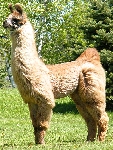
|
|
( Mouse over for larger image or Click to view larger image in new window )
|
-
Animals will exhibit abundant neck and body fleece.
-
Front legs will exhibit coverage down to the toes maintaining heavy coverage
below the knees.
-
Rear legs will exhibit dense coverage down the back of the legs along with fiber
on the front side of the legs.
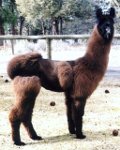
|
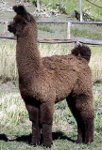
|
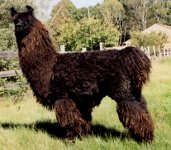
|
|
( Mouse over for larger image or Click to view larger image in new window )
|